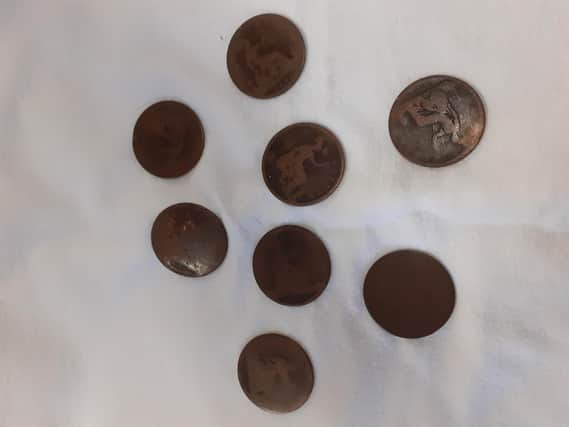You can coin it in with this branch of antiques!


I’ve been described as born ‘pre-decimal’, which, since decimalisation took place exactly 50 years ago, makes me feel ancient! Although the system of 20 shillings and 240 pence to the pound seems nonsensically complex to young people, it’s comfortingly familiar to many of us.
Coin collecting, also known as numismatics, is one of our oldest hobbies. Dating back in Europe to the 12th century, it was the hobby of nobles and kings wealthy enough to send agents scouring for beautiful and valuable coins across Asia and Europe.
Advertisement
Hide AdAdvertisement
Hide AdToday, it is a worldwide pastime for young and old. While it can be profitable, collecting coins isn’t only about the desire for riches. Hold one in your hands and its beauty, uniqueness, weight, age, and history can be enchanting.
Collectors often specialise in a particular coin, currency, or historic era. An area with many pitfalls, non-experts beware: wildly varying prices can be asked for seemingly identical coins.
The Ides of March denarius, commemorating Brutus’ assassination of Julius Caesar, is worth several hundred thousand pounds. A rare gold copy- one of only three known to exist- smashed records by fetching over three million pounds last October!
But even ancient coins don’t have to be expensive However, just because a coin is 2,000 years old does not mean it must be expensive. I have a good collection of old Roman coins that are worth about £150 each. It’s always surprised how little they’ve gone up in value. What other field of collecting can you afford to buy and own something that is 2,000 years old? Roman coins are beautiful, relatively common, and are easy to store.
Advertisement
Hide AdAdvertisement
Hide AdThis is a tiny selection from the veritable pirates’ treasure chest of coins we usually carry in the centre, starting at 50p. The unusual boxed 1972 Guernsey 25p piece, commemorating a Royal Visit, is priced at £8.
There could be something interesting, collectable or valuable in your loose change! A modern 2p coin sold for almost £1,400 at auction in 2016 because it was silver instead of copper.
‘Error coins’, containing minting flaws or mistakes, can fetch high prices. Some 2008-09 20ps, heralded as the ‘Holy Grail of change collecting’, minted missing the date, are worth around £100 each today.
Coins can be easily devalued by bad cleaning and storage. Clean only if they have ingrained dirt, with a soft, non-nylon brush; never rub, and store in paper envelopes, never plastic.
Heads or tails, focus on the details, and you might end up coining it in.